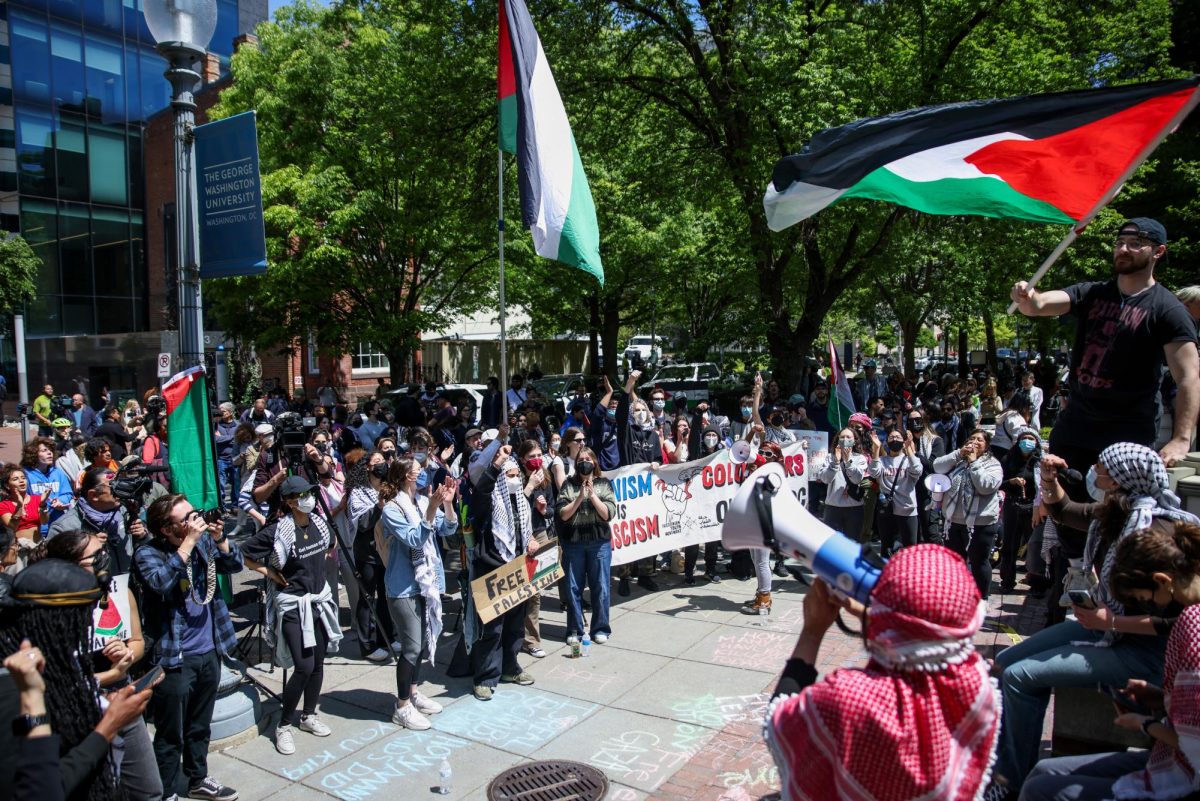The 150 people who filled the Jack Morton Auditorium Friday to hear Newt Gingrich as a guest on a BBC broadcast were surprised to find former presidential Chief of Staff Bill Kristol discussing terrorism instead.
Producers of BBC show “Any Questions” added Kristol to the panel after Gingrich canceled Tuesday, producer Lisa Jenkinson said.
She said they invited Kristol, who worked under former President George Bush, because he holds similar views as Gingrich
The panel also included Ted Halstead, president of the New American Foundation, a moderate think tank; British-born historian Amanda Foreman; and Hafez al Mirazi, head of the Washington Bureau of the 24-hour Arabic news station Al-Jazeera.
Audience members, who participated in the international broadcast by clapping, booing and hissing, posed 10 pre-selected questions about U.S. involvement in Afghanistan to the panel.
BBC show chairman, who moderated the debate, Jonathan Dimbleby asked audience members to raise their hands to show who is American or British. He encouraged the spectators to make noise to show support or dislike for panelists’ statements for the British audience listening overseas.
One audience member sparked a heated debate by questioning American news coverage of the attacks and the war in Afghanistan.
“Truth has not been the first casualty of this war,” Kristol said. “There has been open and fair reporting.”
Foreman and Mirazi disagreed, shedding light on an outsider’s perspective and opinion of American journalism.
“It’s not that they don’t report the truth,” Foreman said. “It’s the whole truth that isn’t reported.”
A moment of silence was observed as a question touched upon the Pearl Harbor attack 60 years ago Friday and compared it to the Sept. 11 attacks.
“This was a very different attack, one aimed at the heart of America,” Halstead said. “But 60 years ago today we were facing a war with powerful states with powerful armies, now we are facing unorganized terrorist groups, so the current conflict will have less intensity than World War II.”
Halstead was met with cheers and whistles as the audience applauded his view of the war in Afghanistan, but booed Kristol’s responses, that represented a clear disapproval of more fighting than necessary.
“This is not going to be a simple war,” Kristol said. “We need to be reminded of Saddam Hussein and not stop until his regime is stopped. We have the resources and the allies, we need to do it.”
“Any Questions,” which originated in the 1950s, travels the globe once a year. Show producers chose the United States in light of the recent attacks. The show aired on BBC 4, one of five radio stations the state-funded news source runs.
The questions and debates lasted for more than over an hour and left the audience facing how Americans are perceived by people abroad.
Mirazi criticized American foreign policy and said many people around the world believe Americans did not care about foreign policy or world news before Sept. 11.
“The vast majority of Americans may not know how they are perceived in the world,” Foreman said. “This is a steep learning curve for them.”







